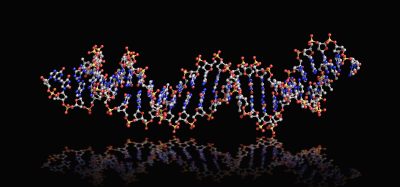Recycled nuclear fuel to power new cancer treatments in the UK
Posted: 20 November 2025 | Drug Target Review | No comments yet
The UK is set to turn recycled nuclear fuel into new cancer treatments, thanks to a £18.8 million investment in a project using lead-212 to develop Targeted Alpha Therapies.


The UK is set to give used nuclear materials a second life in medicine, with a major new project aimed at developing advanced treatments for cancer. A total of £18.8 million is being invested in the initiative, including £9.9 million from the Innovate UK Sustainable Medicines Manufacturing Innovation Programme (SMMIP) and a further £8.9 million from industry partners.
The project, co-led by the United Kingdom National Nuclear Laboratory (UKNNL) and Medicines Discovery Catapult (MDC), will use a radionuclide called lead-212 to create Targeted Alpha Therapies (TATs). These treatments, a form of precision medicine known as radiopharmaceuticals, have the potential to attack cancer cells directly while sparing healthy tissue.
Harvesting lead-212 from recycled fuel
UKNNL has developed a method to extract a sustainable supply of lead-212 from nuclear fuel that has already been used to generate electricity.
Biomarkers are redefining how precision therapies are discovered, validated and delivered.
This exclusive expert-led report reveals how leading teams are using biomarker science to drive faster insights, cleaner data and more targeted treatments – from discovery to diagnostics.
Inside the report:
- How leading organisations are reshaping strategy with biomarker-led approaches
- Better tools for real-time decision-making – turning complex data into faster insights
- Global standardisation and assay sensitivity – what it takes to scale across networks
Discover how biomarker science is addressing the biggest hurdles in drug discovery, translational research and precision medicine – access your free copy today
“Through access to the UK’s sovereign supply of lead-212, we have a truly unique opportunity to transform our nuclear expertise into life-saving cancer treatments,” said Julianne Antrobus, Chief Executive Officer at UKNNL. “Developed from recycled fuel that has already served the nation by powering homes, lead-212 can now serve us again by offering new hope to cancer patients.”
The extraction process is very efficient: a tiny amount of the parent material –equivalent to a single drop of water in an Olympic-sized swimming pool – is processed through chemical reactions to produce the lead-212 needed for treatments. When developed under the right conditions by MDC scientists, this small amount could potentially treat thousands of patients.
A national asset with global potential
The UK has substantial reserves of lead-212, meaning this approach could be scaled up to provide cancer treatments not only for domestic patients but worldwide.
“Lead-212 is an untapped national asset with extraordinary medical potential. By developing therapies from this uniquely sustainable source, with no additional waste, our consortium has the ambition to improve cancer care for patients and to position Britain once again at the forefront of medicinal radiochemistry,” said Professor Chris Molloy, CEO of MDC.
The SMMIP funding will support the development of infrastructure and processes necessary for clinical trials, helping to accelerate the delivery of these treatments to patients.
“The support from Innovate UK’s Sustainable Medicines Manufacturing Innovation Programme gives us the resources to realise our ambition and is a clear signal that the UK is ready to innovate for patients here and around the world,” added Professor Molloy.
Government and industry backing
Science and Technology Secretary Liz Kendall praised the initiative, saying: “Almost 3.5 million people in the UK are living with cancer – but scientific breakthroughs are giving hope to more of them and their families. It’s incredible to think that we could turn used nuclear fuel into cutting edge cancer treatments – but that is exactly what British scientific brilliance is making possible.”
Dr Mark Talford, Deputy Director of Medicines Manufacturing at Innovate UK, added: “By transforming legacy nuclear materials into life-saving cancer treatments, we are not only advancing precision medicine but also demonstrating how sustainability and science can work hand in hand. Through the Sustainable Medicines Manufacturing Innovation Programme, Innovate UK is proud to support this pioneering collaboration.”
A collaborative effort
The project brings together six other consortium members – Cyclife Aquila Nuclear, PentaBind, Iksuda Therapeutics, Seda and entX – who will build the infrastructure, develop and test treatments and strategise the route to market.
“This investment will help us deliver treatments that could transform outcomes for patients with previously untreatable cancers, both here in the UK and globally,” concluded Julianne Antrobus.
Related topics
Biopharmaceuticals, Clinical Trials, Drug Development, Drug Discovery, Funding, Government, Oncology, Precision Medicine, Translational Science
Related conditions
Cancer








